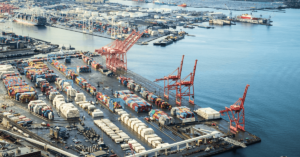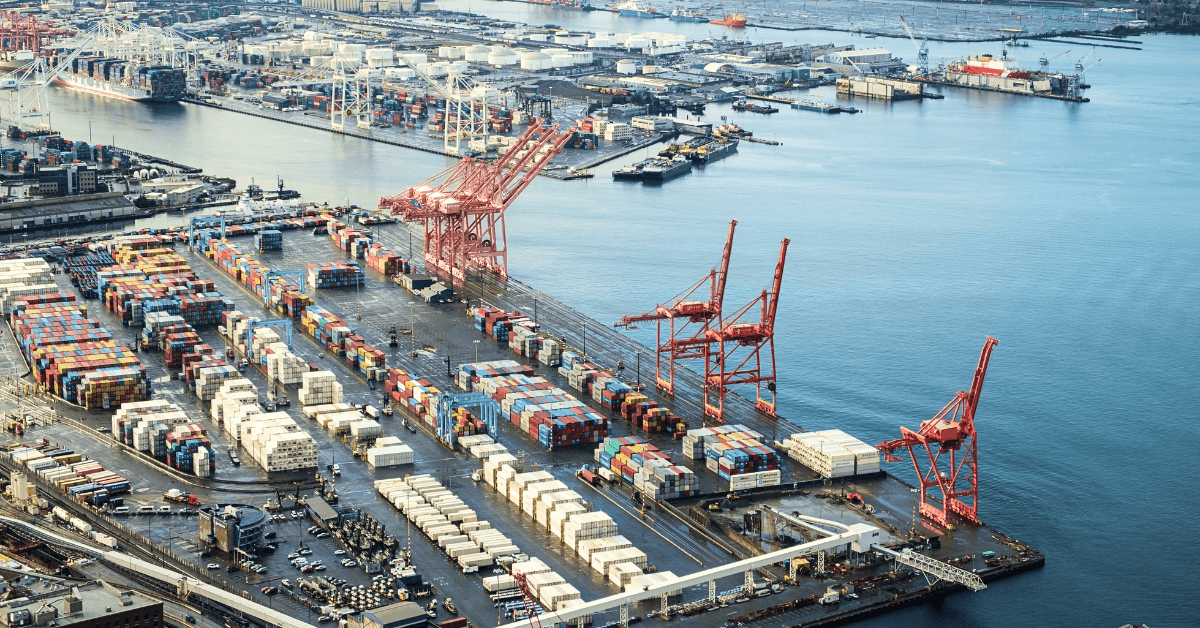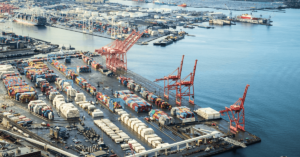
World’s First Hydrogen-Ready High-Speed Ferry To Feature Gas-Steam Turbines
February 22, 2025
World’s First Full-Scale Ship Tunnel To Be Built In Norway
February 24, 2025

The Russian security council has accused NATO of developing plans that could pose a threat to its port infrastructure, citing the alliance’s increasing military activities in the Baltic and Black Seas.
The allegations were made after NATO enhanced its maritime presence and patrols under Operation Baltic Sentry, following a series of similar incidents involving damaged undersea cables and suspected attacks on vessels transporting Russian oil.
Grigory Molchanov, Deputy Secretary of Russia’s Security Council, claimed that NATO is expanding its capabilities to target maritime transport, oil terminals, railway crossings used for fuel deliveries, and major bridges.
He claimed that NATO is drafting new “doctrinal documents” for seabed operations, making it a new combat environment alongside land, air, sea, cyberspace and space.
According to him, these measures are aimed at controlling key maritime regions.
Molchanov also pointed to the use of unmanned attack boats by Ukraine in the Black Sea, stating that they have repeatedly been neutralised by the Russian Navy.
He emphasised the need for increased monitoring of foreign activities that could pose risks to underwater and critical port infrastructure.
The Russian Security Council has recommended to strengthen protective measures for these assets. These concerns have been raised after NATO announced its decision to increase security in the Baltic Sea.
Operation Baltic Sentry will focus on enhancing surveillance and safeguarding the critical undersea infrastructure, amid accusations that Russia has been involved in damaging underwater cables.
However, as per reports published by the Washington Post, these incidents were most likely maritime accidents rather than deliberate sabotage.
Russian officials have strongly opposed NATO’s military build-up near its borders. Nikolay Patrushev, an aide to the President of Russia Vladimir Putin, alleged that Western nations are trying to restrict Moscow’s access to the Baltic Sea.
Deputy Foreign Minister of Russia Aleksandr Grushko stated that Russia will take all necessary steps to protect its regional interests and prevent NATO from turning the Baltic Sea into what he described as its “internal lake.”
Per reports from Russian media, the country is taking proactive security measures to counter potential threats. The Russian Transport Ministry has issued directives requiring all vessels arriving at Russian ports to undergo inspections, including underwater hull checks for explosives.
Reuters claimed to have seen a letter detailing these security measures.
Meanwhile, Greek and Italian authorities are investigating incidents of potential attacks on oil takers transporting Russian oil, involving two Greek-owned tankers, both of which had been involved in Russian oil shipments.
One was damaged while offloading in Italy, while another sustained damage near Turkey in January. Additionally, a Turkish-owned tanker suffered damage while docked in Russia’s Ust Luga port in February.
Though media reports initially described it as an engine room explosion, local officials have labelled the incident as an attack.
Russia maintains that it has no intention of targeting NATO infrastructure and continues to deny involvement in any sabotage activities.
References: RT, Think Tank
Source: Maritime Shipping News


